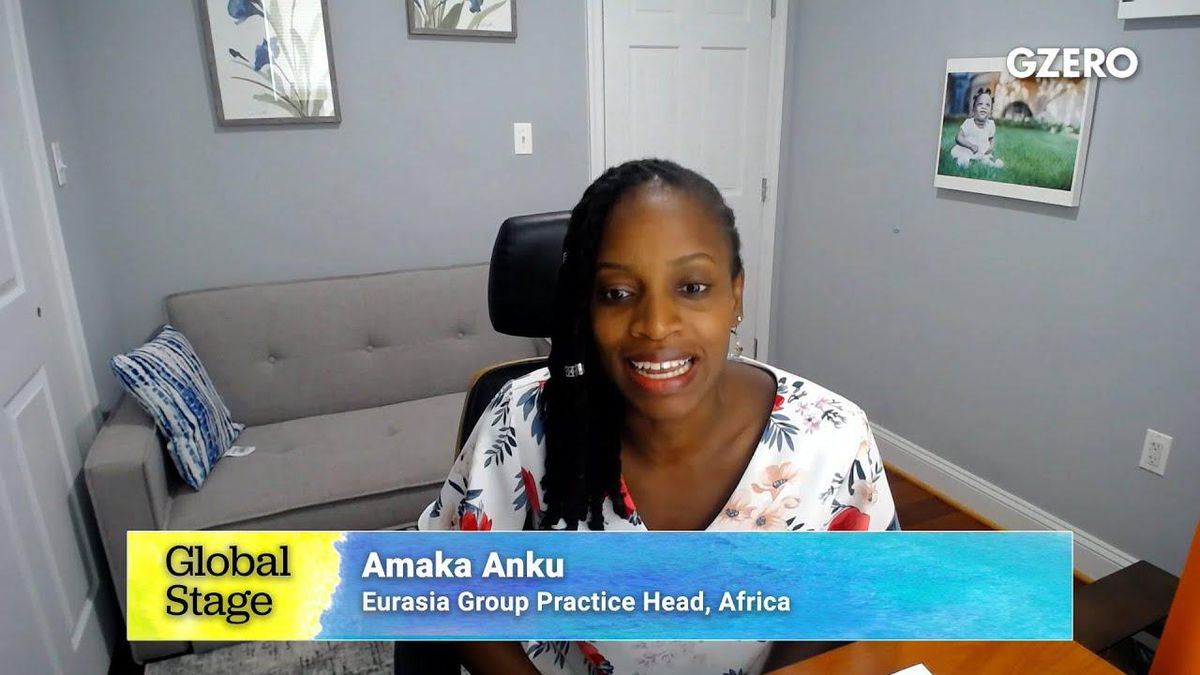There's a big opportunity for African countries to take advantage of the pandemic — if they can get online. "Greater internet connectivity can accelerate growth in tremendous ways," says Eurasia Group's top Africa analyst Amaka Anku. One of them would be formalizing the informal sector, which is very large and hard to tax: "It's much easier if people are paying using digital payments," she explains, but governments also need to do their part by cutting red tape to encourage investment.
Anku weighed in during a Global Stage livestream conversation hosted by GZERO Media in partnership with Microsoft during the 76th UN General Assembly.
Learn more: Should internet be free for everyone? A Global Stage debate
From Your Site Articles


















